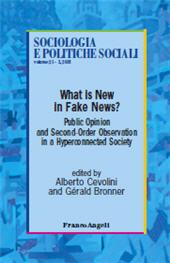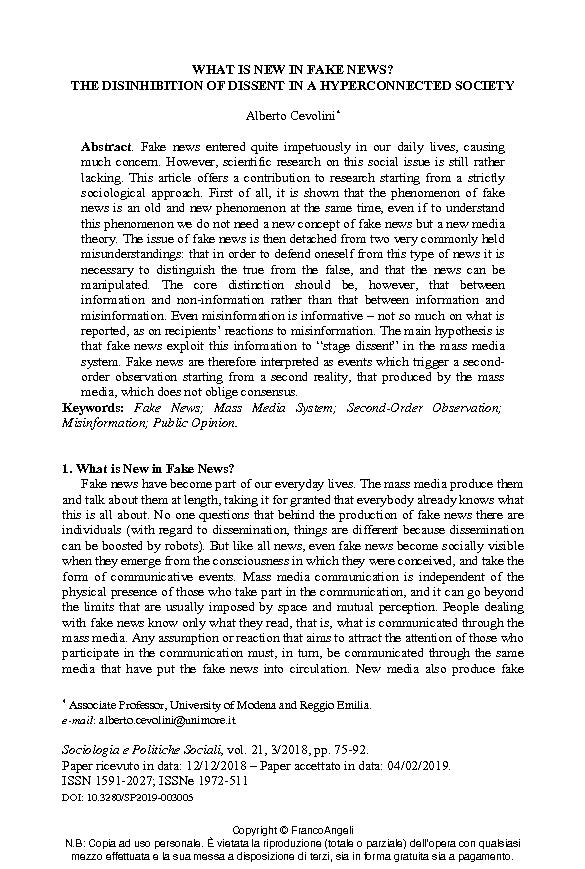What is new in fake news? : the disinhibition of dissent in a hyperconnected society
75-92 p.
Fake news entered quite impetuously in our daily lives, causing much concern. However, scientific research on this social issue is still rather lacking. This article offers a contribution to research starting from a strictly sociological approach. First of all, it is shown that the phenomenon of fake news is an old and new phenomenon at the same time, even if to understand this phenomenon we do not need a new concept of fake news but a new media theory. The issue of fake news is then detached from two very commonly held misunderstandings: that in order to defend oneself from this type of news it is necessary to distinguish the true from the false, and that the news can be manipulated. The core distinction should be, however, that between information and non-information rather than that between information and misinformation.
Even misinformation is informative – not so much on what is reported, as on recipients' reactions to misinformation. The main hypothesis is that fake news exploit this information to "stage dissent" in the mass media system. Fake news are therefore interpreted as events which trigger a second-order observation starting from a second reality, that produced by the mass media, which does not oblige consensus. [Publisher's text].
Fait partie de
Sociologia e politiche sociali : 3, 2018-
Articles du même numéro (disponibles individuellement)
-
Informations
Code DOI : 10.3280/SP2018-003005
ISSN: 1972-5116
DISCIPLINES
KEYWORDS
- Fake News, Mass Media System, Second-Order Observation, Misinformation, Public Opinion



